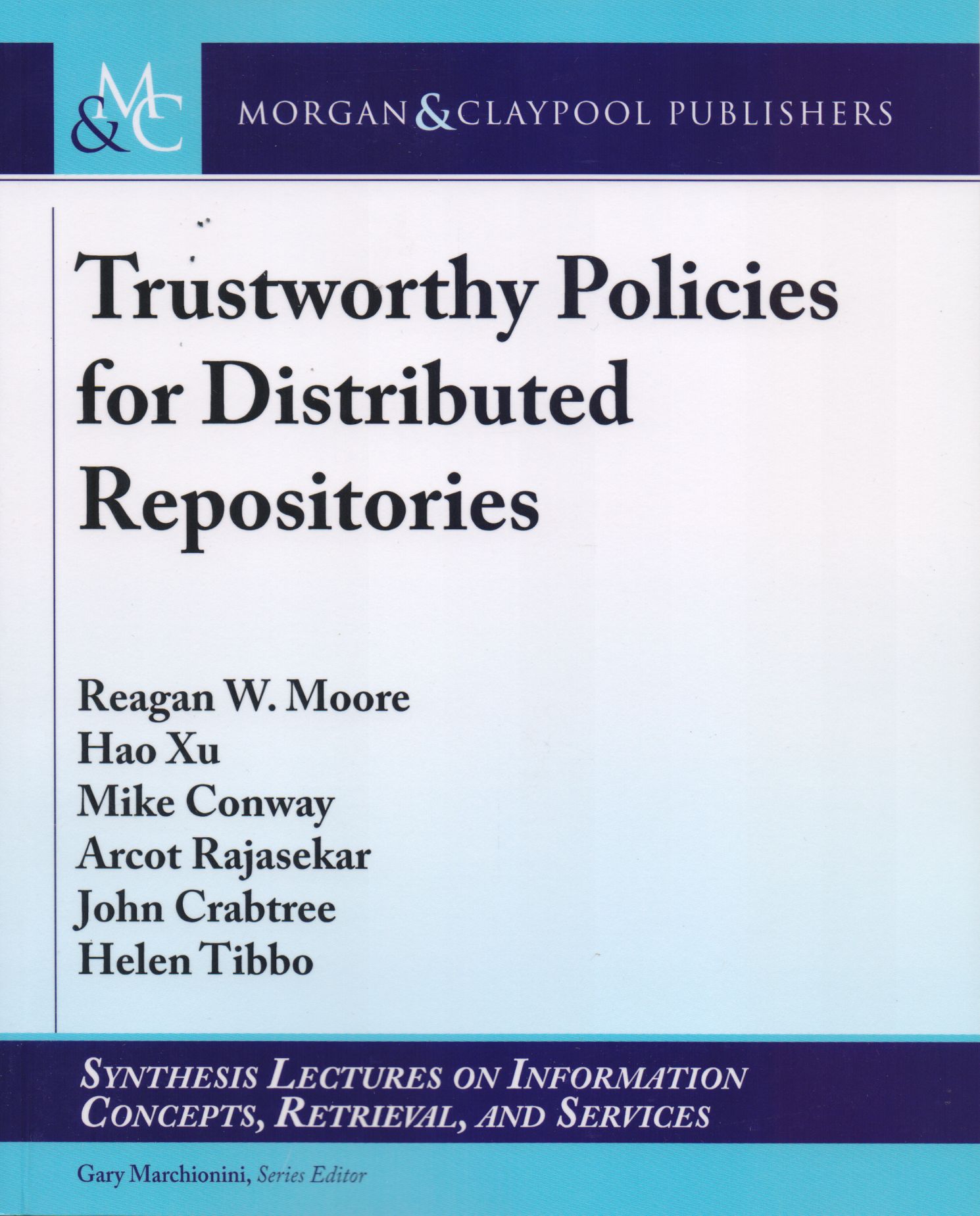Libros relacionados
 |
Scholarly Collaboration On The Academic Social Web He, Daqing / Jeng, Wei Morgan & Claypool Publishers |
 |
Database Anonymization: Privacy Models, Data Utility, And Microaggregation-Based Domingo-Ferrer, Josep / Sánchez, David / Soria-Comas, Jordi Morgan & Claypool Publishers |
 |
Dynamic Information Retrieval Modeling Hui Yang, Grace / Sloan, Marc / Wang, Jun Morgan & Claypool Publishers |
 |
Learning From Multiple Social Networks Nie, Liqiang / Song, Xuemeng / Chua, Tat-Seng Morgan & Claypool Publishers |
 |
Trustworthy Policies For Distributed Repositories W. Moore, Reagan / Xu, Hao / Conway, Mike / Rajasekar, Arcot Morgan & Claypool Publishers |
 |
Notion Of Relevance In Information Science, The: Eveybody Knows What Relevance I Saracevic, Tefko Morgan & Claypool Publishers |
 |
Semantic Interaction For Visual Analytics: Inferring Analytical Reasoning For Mo Endert, Alex Morgan & Claypool Publishers |


|
Título: Sex, Love And Romance In The Mass Media | |
| Autor: Galician Mary-Lou | Precio: $770.00 | |
| Editorial: Lawrence Erlbaum Associates Publishers | Año: 2003 | |
| Tema: Sexologia, Informacion, Medios de Comunicacion | Edición: 1ª | |
| Sinopsis | ISBN: 9780805848328 | |
| This accessible yet research-based text offers both foundational theories and practical applications of analysis and criticism of mass media portrayals of sex, love, and romance in a wide variety of mass media, from entertainment to advertising to news. The multidisciplinary methodological perspective comes out of a media literacy approach and embraces a variety of traditions along the quantitative-qualitative continuum. Focused on portrayals of male-female coupleship, the book is centered around the 12 major myths and stereotypes of Galician's Dr. FUN!'s Mass Media Love Quiz©, each of which has a corresponding Dr. Galician Prescription(R) that encapsulates healthy strategies--rarely found in the mass media--to counteract that myth or stereotype. Readers learn how to identify, illustrate, deconstruct, evaluate, and reframe the mass media's mythic and stereotypic portrayals of sex, love, and romance. They also learn how to use their own formal critical evaluations to clarify their own values and--as media consumers or mass communication creators--to share their insights with others. Thus, the learning objectives encompass all three major educational domains: cognitive, affective, and behavioral. Part I of this book covers the five foundations:
*myths and stereotypes of love and coupleship; *models of realistic and constructive love and coupleship; *mass media storytelling approaches, techniques, and devices; *research and theories of mass media effects; and *strategies and skills of media literacy. Part II is devoted to exploring the myths and stereotypes identified in the Quiz. Following several brief case studies and a summary of related research and commentary, each chapter focuses on analyses and criticisms of portrayals of sex, love, and romance in the content of news and advertising, as well as entertainment using Galician's Seven-Step Dis-illusioning Directions. Each chapter concludes with a "Dis-illusion Digest." While critical of unrealistic portrayals and the damage they can cause unsuspecting media consumers, Galician--a media literacy advocate--is not anti-media. Rather, her goal is to empower consumers to use these portrayals with more awareness of their possible consequences, to resist adopting them as models for actual behavior, and to consciously reframe them into more realistic, productive scenarios. This unique text is an engaging classroom resource for media literacy, media and relationships, and media and society coursework. This accessible yet research-based text offers both foundational theories and practical applications of analysis and criticism of mass media portrayals of sex, love, and romance in a wide variety of mass media, from entertainment to advertising to news. The multidisciplinary methodological |
||
Librería Bonilla SA de CV © Todos los derechos reservados. 2019
Última actualización: Jul 2019




